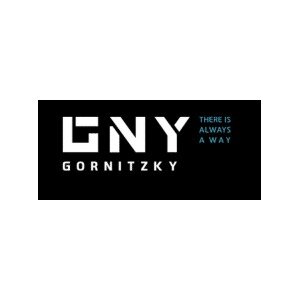Best General Litigation Lawyers in Tel Aviv
Share your needs with us, get contacted by law firms.
Free. Takes 2 min.
List of the best lawyers in Tel Aviv, Israel
About Litigation Law in Tel Aviv, Israel
Litigation in Tel Aviv, Israel, involves the process of taking legal action to resolve disputes through the court system. This can include commercial disputes, family matters, civil rights issues, and more. Tel Aviv, being the country's economic hub, sees a heavy flow of litigation cases ranging from business conflicts to personal legal disputes. The legal proceedings are conducted in accordance with the Israeli judicial system, which is a blend of common law, civil law, and Jewish law.
Why You May Need a Lawyer
There are numerous situations that may necessitate the assistance of a litigation lawyer in Tel Aviv, including:
- Business disputes between partners or with external parties.
- Property disputes, including issues with landlords or property transactions.
- Employment conflicts such as wrongful termination or workplace discrimination.
- Family law issues including divorce, custody battles, or inheritance conflicts.
- Civil rights cases involving discrimination or unfair treatment.
- Personal injury claims from accidents or negligence.
Local Laws Overview
Tel Aviv operates under the legal framework of Israel, where the judiciary is independent and the legal system incorporates several legal traditions:
- Business Litigation: Governed by the Companies Law and Contract Law, it addresses issues like breach of contract, partnership disputes, and corporate governance.
- Real Estate Disputes: The Land Law and Tenant Protection Law regulate matters related to property ownership, leasing, and tenancy issues.
- Family and Inheritance Law: These are under the jurisdiction of the Family Court, guided by the Family Law Amendment (Maintenance) and Inheritance Law.
- Employment Law: Regulated by the Employment (Termination Notice and Severance Pay) Law and the Hours of Work and Rest Law, focusing on worker's rights and employer obligations.
- Civil Rights Law: Encompassed under Basic Laws, particularly Basic Law: Human Dignity and Liberty.
Frequently Asked Questions
1. What is the first step in filing a litigation case?
The first step is to consult with a litigation lawyer who can assess the merits of your case and guide you through the legal process.
2. How long does the litigation process take in Tel Aviv?
The duration can vary significantly depending on the complexity of the case, though it can take several months to years for a case to be resolved.
3. Can I represent myself in court?
While it's possible to represent yourself, it is not advisable due to the complexities of legal procedures and potential disadvantages in handling legal technicalities.
4. How much does hiring a litigation lawyer cost?
The cost can vary based on the lawyer’s experience, the complexity of the case, and the duration of the litigation. Some lawyers offer flexible payment options or contingency fees.
5. What is a contingency fee?
A contingency fee is a payment arrangement where the lawyer only gets paid if you win the case, taking a percentage of the awarded amount.
6. What documents will I need for my litigation case?
This depends on the type of case, but generally includes contracts, correspondence, financial records, and any other relevant evidence.
7. Can litigation outcomes be appealed?
Yes, decisions made by lower courts can be appealed to higher courts within specific timeframes and under certain conditions.
8. What are the alternative dispute resolution options available?
Alternative options include mediation and arbitration, which can be quicker and less costly than traditional litigation.
9. Do court decisions in Tel Aviv have precedential value?
Yes, like most common law systems, past court decisions can influence the outcomes of future cases, although they are not binding in all situations.
10. How are litigation cases affected by local cultural factors?
Cultural factors can influence the litigation process, especially in family law cases, where religious and social norms may play a significant role.
Additional Resources
Below are some useful resources for those seeking legal advice in the field of litigation in Tel Aviv:
- The Israel Bar Association - provides resources and directories for finding qualified lawyers.
- The Ministry of Justice - oversees the judicial system and offers public legal information.
- District Courts - for details on court proceedings and requirements specific to Tel Aviv.
- Legal Aid Bureau - offers assistance for those who cannot afford a private attorney.
Next Steps
If you need legal assistance in litigation, consider the following steps:
- Consultation: Schedule a consultation with a qualified litigation lawyer to discuss your case and explore your legal options.
- Documentation: Gather all relevant documents and evidence related to your case.
- Filing: Work with your lawyer to file the necessary legal documents and initiate the litigation process.
- Representation: Have your lawyer represent you in court and guide you through the legal proceedings.
- Follow-up: Stay in regular contact with your lawyer to stay informed about the status of your case and any required actions.
Lawzana helps you find the best lawyers and law firms in Tel Aviv through a curated and pre-screened list of qualified legal professionals. Our platform offers rankings and detailed profiles of attorneys and law firms, allowing you to compare based on practice areas, including General Litigation, experience, and client feedback.
Each profile includes a description of the firm's areas of practice, client reviews, team members and partners, year of establishment, spoken languages, office locations, contact information, social media presence, and any published articles or resources. Most firms on our platform speak English and are experienced in both local and international legal matters.
Get a quote from top-rated law firms in Tel Aviv, Israel — quickly, securely, and without unnecessary hassle.
Disclaimer:
The information provided on this page is for general informational purposes only and does not constitute legal advice. While we strive to ensure the accuracy and relevance of the content, legal information may change over time, and interpretations of the law can vary. You should always consult with a qualified legal professional for advice specific to your situation.
We disclaim all liability for actions taken or not taken based on the content of this page. If you believe any information is incorrect or outdated, please contact us, and we will review and update it where appropriate.












